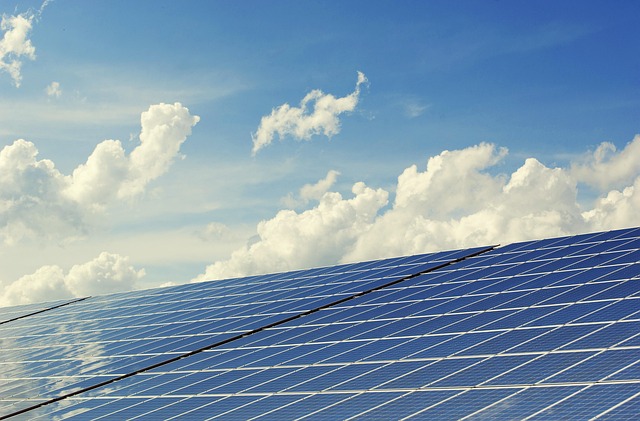Power Up: The Must-Have Generator for Every Modern Homeowner
In today’s world, where reliability and sustainability are more important than ever, having a reliable power source is vital. Whether due to unpredictable weather, natural disasters, or simply wanting to lower your electricity bills, investing in a power generator can offer peace of mind. In this article, we’ll explore the must-have generator for every homeowner this year, focusing on solar power generators and other innovative power generation solutions.

How Can You Achieve Reliable Power at Home?
Establishing reliable power at home begins with understanding your household’s energy needs and selecting the appropriate generator type. Standby generators automatically activate during outages, seamlessly maintaining power to essential appliances and systems. These units connect directly to your home’s electrical panel and natural gas line or propane tank, providing uninterrupted electricity without manual intervention.
Portable generators offer flexibility and affordability, allowing you to power specific appliances or areas of your home during outages. While they require manual startup and fuel management, these units provide excellent value for homeowners who experience occasional power disruptions. When selecting a generator, calculate your home’s essential power requirements, including refrigeration, heating or cooling systems, lighting, and communication devices to ensure adequate capacity.
Why Are Solar Generators an Eco-Friendly Solution?
Solar generators represent a revolutionary approach to backup power, combining environmental responsibility with practical functionality. These systems harness renewable energy through photovoltaic panels, storing electricity in high-capacity batteries for use during outages or off-grid situations. Unlike traditional fuel-powered generators, solar units produce zero emissions, operate silently, and require minimal maintenance once installed.
Modern solar generators feature advanced battery technologies, such as lithium iron phosphate, which provide longer lifespans and faster charging capabilities. Many systems include multiple charging options, accepting power from solar panels, wall outlets, or car adapters. This versatility makes solar generators particularly attractive for homeowners seeking sustainable energy solutions that reduce their carbon footprint while maintaining emergency preparedness.
What’s the Best Way to Protect Against Power Outages?
Protecting against power outages requires a comprehensive approach that combines the right equipment with proper preparation. Start by identifying critical systems and appliances that must remain operational during outages, such as medical equipment, security systems, refrigeration, and communication devices. Install surge protectors and uninterruptible power supplies for sensitive electronics to prevent damage from power fluctuations.
Consider implementing a whole-house generator system for complete protection, or strategically place portable units to cover essential areas. Maintain adequate fuel supplies for gas-powered generators, and ensure solar systems receive sufficient sunlight exposure. Regular maintenance, including oil changes, filter replacements, and battery testing, keeps your backup power system ready for immediate deployment when needed.
How Can Generators Help Reduce Energy Bills?
Generators can contribute to reduced energy bills through strategic use during peak pricing periods and by enabling energy independence practices. Some advanced generator systems feature load management capabilities, automatically switching to backup power when utility rates spike or during time-of-use pricing peaks. Solar generators with battery storage allow homeowners to collect energy during low-cost periods or peak solar production, then use stored power when rates increase.
Grid-tie solar generator systems can feed excess energy back into the electrical grid, potentially earning credits through net metering programs. Additionally, generators enable homeowners to reduce their dependence on utility companies during emergency situations, avoiding potential premium charges for emergency power restoration services. Smart generator systems can monitor utility rates and automatically optimize energy usage to minimize costs.
How Do You Embrace Energy Independence?
Embracing energy independence involves creating a self-sufficient power ecosystem that reduces reliance on traditional utility services. Start by conducting an energy audit to identify consumption patterns and opportunities for efficiency improvements. Combine generator systems with energy-efficient appliances, LED lighting, and improved insulation to maximize your backup power duration and effectiveness.
Solar generator systems paired with battery storage create the foundation for true energy independence, allowing homeowners to generate, store, and manage their electricity production. Consider expandable systems that accommodate future growth, additional solar panels, or increased battery capacity as your needs evolve. Energy management software and smart home integration help optimize power usage, automatically prioritizing essential systems and maximizing generator efficiency.
| Generator Type | Provider | Power Output | Estimated Cost Range |
|---|---|---|---|
| Portable Gas Generator | Honda EU3000iS | 3,000W | $2,000 - $2,500 |
| Standby Generator | Generac Guardian 24kW | 24,000W | $6,000 - $8,000 |
| Solar Generator | Goal Zero Yeti 6000X | 6,000W | $4,500 - $5,500 |
| Portable Propane | Champion 3800W | 3,800W | $400 - $600 |
| Inverter Generator | Yamaha EF2000iSv2 | 2,000W | $1,000 - $1,200 |
Prices, rates, or cost estimates mentioned in this article are based on the latest available information but may change over time. Independent research is advised before making financial decisions.
Making the Right Generator Choice
Selecting the ideal generator requires balancing your power needs, budget, environmental concerns, and maintenance preferences. Traditional fuel-powered generators offer high output and quick refueling but require ongoing fuel costs and produce emissions. Solar generators provide clean, quiet operation with minimal maintenance but may have higher upfront costs and weather-dependent charging capabilities.
Consider factors such as your region’s climate, frequency of power outages, local fuel availability, and long-term energy goals when making your decision. Many homeowners benefit from hybrid approaches, combining different generator types to address various scenarios and maximize energy security. Professional installation and regular maintenance ensure optimal performance and safety, regardless of which generator type you choose.
The investment in a quality generator system pays dividends through enhanced security, reduced utility dependence, and peace of mind during emergencies. As extreme weather events become more frequent and utility infrastructure faces increasing strain, generators have evolved from luxury items to essential home equipment for modern homeowners seeking reliable, sustainable power solutions.




